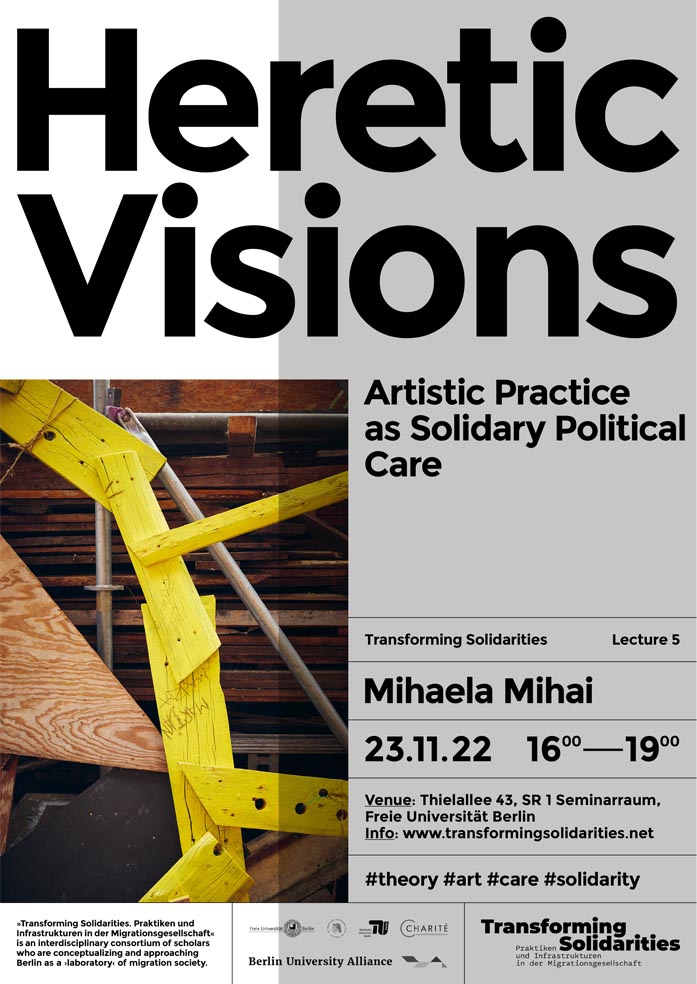TRANSFORMING SOLIDARITIES LECTURE SERIES
Wednesday, 23.11.2022, 4-7 pm | Institute for Philosophy, Thielallee 43, Seminar Room 1, FU Berlin
Heretic Visions: Artistic Practice as Solidary Political Care – Mihaela Mihai
Resilient patterns of political marginalisation are stabilised through the silencing of certain voices and accounts of the past from the vision of “the People” that gets reproduced trans-generationally – materially and symbolically. The ideological hijacking of memory underpins exclusionary imaginaries and reinforces ongoing institutional practices of disenfranchisement, based on ethnicity, gender, class, racialisation, sexuality, and religion, among other markers of distinction. This lecture foregrounds a particular form of solidarity with the historically excluded – one that is delivered aesthetically, by artists articulating heretic visions of the community’s past, present, and future. Building on insights from the philosophy of art and feminist ethics, Mihaela Mihai proposes to read artistic work that renders visible the social production of unassimilable Others as a form of political care for the health of democracy. An analysis of two artworks by Australian artist Angelica Mesiti – Citizens’ Band from 2012 and Assembly from 2019 – shows concretely how this solidary labour of care can be provided aesthetically within societies marred by structural exclusions, simultaneously shedding light on ongoing marginalisation, and prefiguring a community yet to come.

Mihaela Mihai is a political theorist at the University of Edinburgh, where she co-directs the Centre for Ethics and Critical Thought. She is the author of Negative Emotions and Transitional Justice (Columbia University Press, 2016) and Political Memory and the Aesthetics of Care: The Art of Complicity and Resistance (Stanford University Press, 2022).
Transforming Solidarities. Praktiken und Infrastrukturen in der Migrationsgesellschaft« is an interdisciplinary consortium of scholars who are conceptualizing and approaching Berlin as a ›laboratory‹ of migration society – that is, a society that is fundamentally and irrevocably transformed by migration. Through case studies that examine the interconnected areas of labor, housing and health we explore how solidarity is negotiated and investigate practices and infrastructures that condition or limit solidarity.
More info: www.transformingsolidarities.net
Download Poster here.
Foto: (c) Monika Keiler